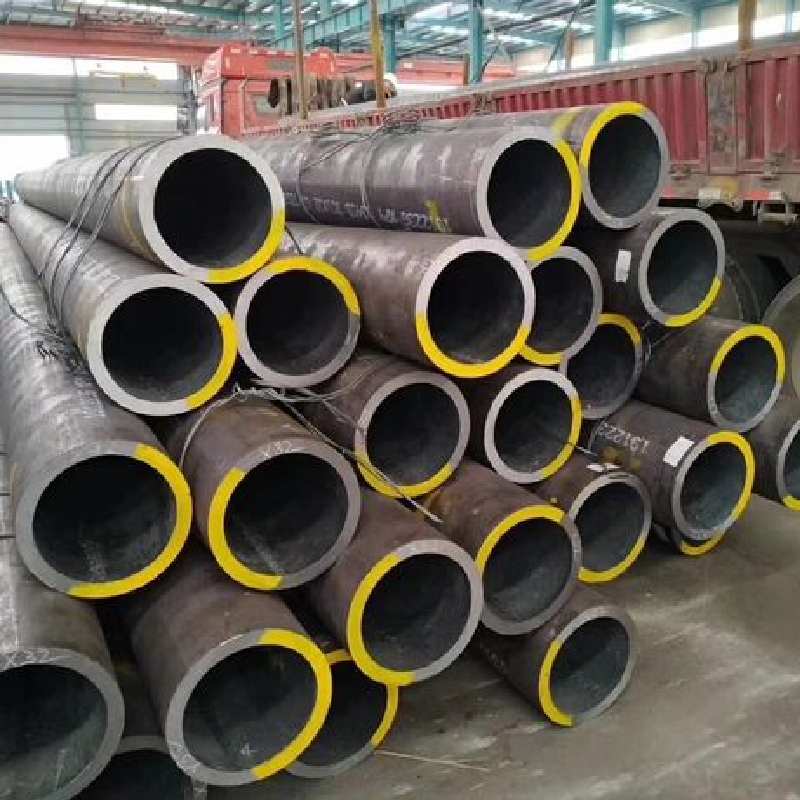-
Cangzhou Yulong Steel Co., Ltd.
-
Phone:
+86 13303177267 -
Email:
admin@ylsteelfittings.com
- English
- Arabic
- Italian
- Spanish
- Portuguese
- German
- kazakh
- Persian
- Greek
- French
- Russian
- Polish
- Thai
- Indonesian
- Vietnamese
- Zulu
- Korean
- Uzbek
- Hindi
- Serbian
- Malay
- Ukrainian
- Gujarati
- Haitian Creole
- hausa
- hawaiian
- Hebrew
- Miao
- Hungarian
- Icelandic
- igbo
- irish
- Japanese
- Javanese
- Kannada
- Khmer
- Rwandese
- Afrikaans
- Albanian
- Amharic
- Armenian
- Azerbaijani
- Basque
- Belarusian
- Bengali
- Bosnian
- Bulgarian
- Catalan
- Cebuano
- China
- China (Taiwan)
- Corsican
- Croatian
- Czech
- Danish
- Esperanto
- Estonian
- Finnish
- Frisian
- Galician
- Georgian
- Kurdish
- Kyrgyz
- Lao
- Latin
- Latvian
- Lithuanian
- Luxembourgish
- Macedonian
- Malgashi
- Malayalam
- Maltese
- Maori
- Marathi
- Mongolian
- Myanmar
- Nepali
- Norwegian
- Norwegian
- Occitan
- Pashto
- Dutch
- Punjabi
- Romanian
- Samoan
- Scottish Gaelic
- Sesotho
- Shona
- Sindhi
- Sinhala
- Slovak
- Slovenian
- Somali
- Sundanese
- Swahili
- Swedish
- Tagalog
- Tajik
- Tamil
- Tatar
- Telugu
- Turkish
- Turkmen
- Urdu
- Uighur
- Welsh
- Bantu
- Yiddish
- Yoruba

Dec . 01, 2024 18:07 Back to list
steel pipe for welding
The Importance of Steel Pipe for Welding An Overview
Steel pipes are among the most versatile and widely used materials in construction and manufacturing industries. Their incredible strength, durability, and adaptability make them ideal for various applications, especially in welding. This article explores the characteristics, types, and applications of steel pipe for welding, outlining its crucial role in modern infrastructure.
Characteristics of Steel Pipes
Steel pipes possess several characteristics that make them suitable for welding. Firstly, they offer impressive tensile strength and ductility, which are critical in withstanding the heavy loads and stresses typically encountered in construction projects. Additionally, steel pipes are resistant to corrosion and wear, especially when treated or coated, further extending their lifespan.
One of the essential features of steel pipes is their ability to withstand extreme temperatures, making them ideal for high-pressure applications. Furthermore, the uniformity in their thickness and composition ensures consistent quality during the welding process. These attributes not only facilitate the joining of surfaces but also ensure the integrity and safety of the final structure.
Types of Steel Pipes
When discussing steel pipes for welding, it is crucial to differentiate between various types. The most common types include
1. Seamless Steel Pipes These pipes are manufactured without any joints, providing higher strength and reliability. They are often used in critical applications such as oil and gas transportation.
2. Welded Steel Pipes Welded pipes are formed by rolling steel sheets and welding the edges. While they may not have the same strength as seamless pipes, they are more cost-effective and sufficient for many applications.
3. Carbon Steel Pipes Often used for structural purposes, carbon steel pipes are popular in construction and manufacturing due to their strength and affordability.
steel pipe for welding

5. Alloy Steel Pipes These pipes are made by adding specific elements to steel, enhancing certain properties. Alloy steel pipes are used in applications where high-temperature and high-pressure conditions prevail.
Applications of Steel Pipes in Welding
The applications of steel pipes in welding are diverse and critical. They play a significant role in various industries, including
- Construction Steel pipes are essential in building frames, scaffolding, and columns. Their strength allows for the reliable assembly of large structures, providing safety and stability.
- Oil and Gas In the oil and gas sector, steel pipes are used to transport hydrocarbons over long distances. The strength and reliability of welded steel pipes prevent leakage and ensure safety throughout the transportation process.
- Manufacturing Machinery often requires steel piping for structural integrity. Welded steel pipes are common in manufacturing facilities, supporting processes and equipment.
- Water Supply and Sewage Steel pipes are extensively used in municipal water systems and sewage treatment facilities. Their durability ensures the safe and efficient transport of water and waste.
- Automotive and Aerospace In the automotive and aerospace industries, steel pipes are crucial for fuel and hydraulic systems. Their ability to withstand extreme conditions makes them a preferred choice.
Conclusion
The welding of steel pipes presents a multitude of benefits and applications across various industries. Their strength, durability, and variety make them indispensable in modern construction and manufacturing processes. As advancements in welding technology continue to evolve, the efficiency and safety of using steel pipes will only improve, ensuring that they remain a vital component of infrastructure development.
In summary, the selection of the right type of steel pipe for welding is crucial for the success of any project. Understanding the characteristics and applications of different steel pipes empowers engineers and construction professionals to make informed decisions, ultimately leading to safer and more reliable structures.
Latest news
-
ANSI 150P SS304 SO FLANGE
NewsFeb.14,2025
-
ASTM A333GR6 STEEL PIPE
NewsJan.20,2025
-
ANSI B16.5 WELDING NECK FLANGE
NewsJan.15,2026
-
ANSI B16.5 SLIP-ON FLANGE
NewsApr.19,2024
-
SABS 1123 FLANGE
NewsJan.15,2025
-
DIN86044 PLATE FLANGE
NewsApr.19,2024
-
DIN2527 BLIND FLANGE
NewsApr.12,2024
-
JIS B2311 Butt-Welding Fittings LR/SR 45°/90° /180°Seamless/Weld
NewsApr.23,2024











